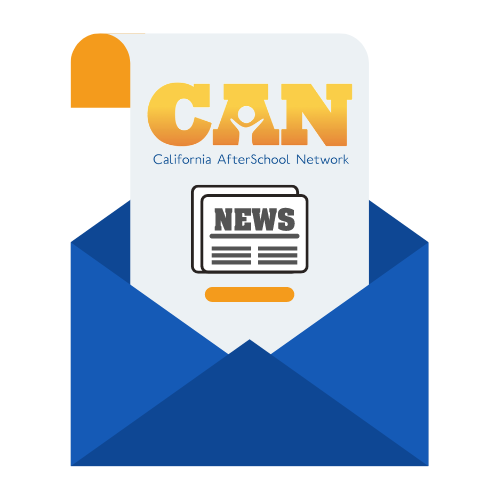CDE Early Learning and Care Division COVID-19 Guidance on Apportionment, Attendance, and Reporting Requirements
March 18, 2020
Management Bulletin 20-04: COVID-19 Guidance on Apportionment, Attendance, and Reporting Requirements
Early Learning and Care Division
- Subject: COVID-19 Guidance on Apportionment, Attendance, and Reporting Requirements
- Number: 20-04
- Date: March 18, 2020
- Expires: June 30, 2020 or unless rescinded sooner
- Authority: Senate Bill 117 (Chapter 3, Statutes of 2020)
- Attention: Executive Directors, and Program Directors of All Early Learning and Care Programs
Purpose
This Management Bulletin (MB) is to notify and provide guidance to state-subsidized early learning and care programs about updated apportionment, attendance, and reporting requirements after the enactment of Senate Bill (SB) 117.
It is important to note that this is not a permanent change to statute or regulations. These requirements will apply until June 30, 2020, unless nullified or changed by the Legislature. As the situation evolves and more information is available, the California Department of Education (CDE) will issue additional guidance.
The CDE encourages those that can safely provide care to do so, following state and local public health guidance in addition to guidance from the Centers for Disease Control and Prevention (CDC). Additionally, as needs evolve, the CDE will be reaching out to early learning and care contractors and programs to have them be part of the solution in addressing the needs of working families, in particular, the needs of low-income families and parents who are health workers, emergency response personnel, key governmental staff, and child care workers.
Background
The California Education Code (EC) and California Code of Regulations, Title 5, (5 CCR) currently set apportionment, attendance, and reporting requirements for state-subsidized early learning and care programs. Contractors are required to submit monthly or quarterly fiscal and attendance reports, to the Child Development and Nutrition Fiscal Services (CDNFS) Unit by the 20th of the month following the end of the reporting period. Pursuant to 5 CCR Section 18056(a)(2), acceptable reports not received by CDNFS by the 20th of the month are deemed delinquent and apportionments are withheld until an acceptable report is received.
On March 17, 2020, the Governor signed SB 117 (Chapter 3, Statutes of 2020) which includes provisions to ensure continuity of care for children and continuity of payments to state-subsidized early learning and care programs, subject to guidance from the State Superintendent of Public Instruction (SSPI).
Specifically, the bill provides authority to the SSPI to issue guidance to waive specific attendance and reporting requirements imposed on state-subsidized early learning and care programs impacted by the coronavirus (COVID-19). This waiver authority applies to Fiscal Year (FY) 2019-20 and the following programs: Alternative Payment Program (CAPP), Migrant Child Care (CMIG and CMAP), California State Preschool Program (CSPP), General Child Care (CCTR), Family Child Care Home Education Networks (CFCC), Care for Children with Severe Disabilities (CHAN), and CalWORKs Stages 1, 2, and 3 (C1AP, C2AP, and C3AP) programs.
This new law allows the SSPI to develop directives to modify, as necessary, contractual reporting requirements applicable for FY 2019-20 state-subsidized early learning and care programs impacted by COVID-19. The guidance below responds to this topic.
In accordance with EC sections 8227.3, 8262.1, and 8262.2, contractors are authorized to use digital signatures and maintain records electronically, or convert records from a paper format to an electronic format. Please refer to Management Bulletin 16-02 https://www.cde.ca.gov/sp/cd/ci/mb1602.asp for additional guidance.
Policy
Upcoming fiscal and attendance reporting requirements are being temporarily delayed. State-subsidized early learning and care programs shall be reimbursed as provided in the Directive below.
In addition, the CDE encourages state-subsidized early learning and care contractors to collaborate with their local public health departments and refer to guidance from the CDC and the California Department of Public Health. Some counties have determined that childcare is an essential service when providing care for parents who are providing essential services. Please refer to your local public health department for their definition of essential services.
Directive
Fiscal and Attendance Reporting Requirements Temporarily Extended
The deadline to submit the February 2020 monthly report or March 2020 quarterly report has been extended to May 20, 2020. During this time, any contractors who were not previously subject to withholding of apportionments prior to the COVID-19 emergency will continue to receive monthly apportionment payments.
If a contractor, during the state declared State of Emergency related to COVID-19, has the ability to submit an updated attendance and fiscal report, and if that updated data benefits the contractor, they are encouraged to do so. This may include instances when a contractor has increased enrollment since their last reporting period, thus increasing the calculated apportionment amount due. Reports currently submitted online (CAPP, CMAP, CFCC, C2AP and C3AP) may continue to be submitted online. For those reports that are currently mailed to the CDE, CDNFS is requesting that contractors email any updated attendance and fiscal reports to their fiscal analyst, in addition to mailing the original report to the CDE. The CDE Fiscal Apportionment Analyst Directory web page can be found at https://www.cde.ca.gov/fg/aa/cd/faad.asp.
The CDE will continue to monitor the state declared State of Emergency related to COVID-19, and will issue further guidance on reporting requirements where necessary.
Contractor Monthly Apportionment Payments
The extension of fiscal and attendance reporting deadlines allows CDNFS to continue to process monthly apportionment payments to contractors, despite the absence of attendance and fiscal reports.
The CDNFS will use the most current attendance and fiscal report to project earnings. These projections will be the basis for determining the monthly apportionment payments.
Center-Based Contractor Reimbursement
Center-based contractors (CCTR, CSPP, CMIG, and CHAN) who are closed as a result of the state declared State of Emergency should refer to Management Bulletin 10-09 for emergency closure information.
For center-based contractors who remain open:
- Contractors shall submit fiscal and attendance reports in accordance with the Directive above in the “Fiscal and Attendance Reporting Requirements Temporarily Extended” section.
- COVID-19 can be considered a family emergency; therefore, center-based contractors may include absences due to COVID-19 as excused absences.
Provider Reimbursement
Alternative Payment (AP) contractors must reimburse providers that have closed and are not providing services for up to 30 days after closure. Providers reimbursed by AP programs, including CalWORKs Stages 1, 2, and 3 must be reimbursed using the most recent monthly attendance record or invoice, except where otherwise provided below:
- Providers who are closed due to COVID-19 and are not able to submit their monthly attendance record or invoice shall be reimbursed based on the certified need/certificate. For families certified for a variable schedule, providers shall be reimbursed based on the maximum authorized hours of care. License-exempt providers shall also be reimbursed based on the maximum authorized hours of care.
- Providers who are remaining open:
- These providers shall submit attendance records or invoices in accordance with current reporting policies. Providers may submit an invoice or attendance record without the parent signature if the parent is unavailable to sign due to COVID-19.
- Regardless of attendance, providers shall be reimbursed
based on the certified need/certificate.
- For families certified for variable schedule, reimbursement shall be made for the maximum authorized hours of certified need.
- For license-exempt providers reimbursement shall be made for the maximum authorized hours of certified need.
- Providers that are unable to submit an attendance record or invoice, should contact their AP contractor. The AP contractor must reimburse based on the certified need/certificate. For families certified for variable schedule, reimburse based on the maximum authorized hours of care. For license-exempt providers reimburse based on the maximum authorized hours of care.
Families who still need services, but whose usual provider is closed, can select an alternate provider that will be paid.
The AP contractors should work with providers to determine the best way to receive attendance and/or invoice records while ensuring local public health department guidelines are being met. This may include, but is not limited to, submitting electronic records, including digital signatures, or access to a drop box outside of the building.
Data Reporting Requirements for Alternative Payment Contractors and County Welfare Departments
The CDE and the California Department of Social Services (CDSS) will be asking that AP contractors and County Welfare Departments collect information and report data on dual provider payments for the time period of March 16, 2020 through March 31, 2020. The CDE and CDSS will jointly issue further guidance on reporting instructions next week. We understand that there may be some cost pressures to AP contractors because of an increased need to full-time care for school age children, collection of the data above will assist us in mitigating this issue. AP contractors shall not disenroll families because of funding issues.
Resources
The CDSS Community Care Licensing Division has developed Provider Information Notice (PIN) 20-04-CCP, which provides a statewide waiver for operation of child care facilities, including licensees, registered TrustLine providers, and temporary employer sponsored child care, along with guidance for the implementation of prevention, containment, and mitigation measures for COVID-19. This PIN can be found on the CDSS website at https://www.cdss.ca.gov/inforesources/community-care-licensing.
Additional information is forthcoming to address early learning and care provider payments, contracting, family fees, and reporting requirements. The CDE will additionally be developing a resource page that will include answers to frequently asked questions, all management bulletins issued to implement pertinent legislation, including MB 20-04, and other relevant resources. To be informed of the updated information, please sign up for Early Learning and Care Division’s email list at https://www.cde.ca.gov/sp/cd/ci/progspeclist.asp
For more information about federal and state guidance and response to COVID-19, please refer to the CDC website at https://www.cdc.gov/, the California Department of Public Health’s website at https://www.cdph.ca.gov/, and the California COVID-19 Response website at https://covid19.ca.gov/.
If you have any questions regarding the information in this MB, please contact your assigned Early Learning and Care Consultant via the CDE Consultant Regional Assignments web page at https://www.cde.ca.gov/sp/cd/ci/assignments.asp or by phone at 916-322-6233.
________________________________
Stephen Propheter, Director
Early Learning and Care Division


